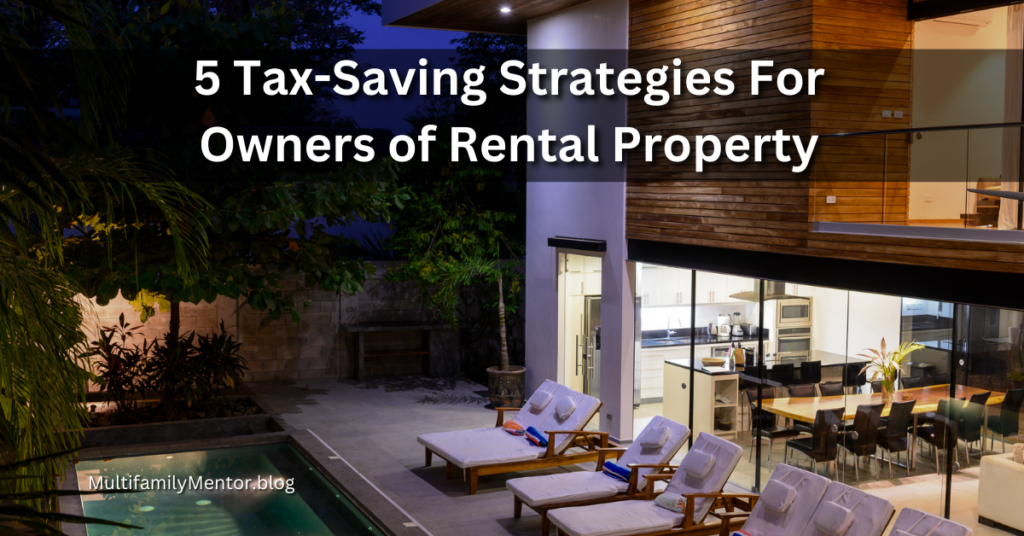With the help of these 5 tax-saving strategies for rental income, you may minimize your taxable income and increase your rental income. Consult a knowledgeable tax specialist for professional guidance right away.
Executive Summary
Although rental income is a great way to lower taxable income, many property owners don't fully utilize the deductions that are available to them. You can optimize your deductions and minimize your tax liability by being aware of the IRS's regulations regarding rental properties. In this post, we'll go over the top 5 methods for using rental income to lower taxable income, including claiming deductions for depreciation and other related costs.
Introduction
If you own rental properties, you're undoubtedly well aware of the tax implications of rental income. Yet, you might not be aware that there are a number of costs connected to owning and maintaining rental properties that can be written off. These deductions can dramatically lower your tax liability and increase your rental income. We'll look at the top 5 ways rental income can be used to lower taxable income in this article.
Deducting Rental-Related Costs
The ability to deduct a variety of rental-related costs from your taxable income is one of the biggest advantages of owning rental properties. These costs may include the cost of property management, as well as upkeep, repairs, marketing, and other costs. The following are key details you should be aware of regarding the deduction of rental-related expenses:
- You must maintain complete records of all rental-related expenses in order to correctly claim deductions
- Most rental-related expenses are deductible as long as they are deemed “ordinary and essential” for your rental business.
- If you rent out a piece of your house, you can only write off the costs associated with that area.
Taking Tax Deductions for Depreciation
Taking depreciation deductions on your rental property is another strategy to lower your taxable income. You can gradually recoup the cost of your property through depreciation, a tax deduction. You should be aware of the following important details before deducting depreciation:
- You can only claim depreciation on the portion of your property that is used for rental purposes.
- You must calculate your deduction using the right depreciation schedule.
- You cannot deduct depreciation on the land that your property is built on.
Making use of the Section 179 Deduction
You may be eligible to claim a Section 179 deduction to lower your taxable income if you make renovations to your rental property. With a Section 179 deduction, you can write off the entire cost of a specific kind of asset in the year that you buy it or put it to use. Here are some crucial details of using a Section 179 deduction that you should be aware of:
- For example, HVAC systems, security systems, and other additions to your rental property that qualify can be written off under Section 179.
- The phase-out barrier is $2.62 million, while the maximum Section 179 deduction is $1.05 million for 2021.
- In order to be eligible for a Section 179 deduction, the property must be used for rental purposes more than 50% of the time.
Reimbursing Home Office Expenses
You could also be eligible to deduct expenses related to your home office from your taxes if you use a portion of your house for rental purposes. With home office deductions, you can write off costs like utilities, mortgage interest, and property taxes that are associated with the area of your house that is used as a rental. You should be aware of the following important details before claiming home office deductions:
- In order to be eligible for home office deductions, you use the space allocated to your office 100 percent of the time for business.
- The percentage of your home that is used for rental purposes determines how much of your home office deduction is allowed.
- To be eligible for home office deductions, you must adhere to certain IRS requirements, such as using the location as your main place of business.
Taking an Allowable Business Income Deduction
Under the new Qualified Business Income (QBI) deduction, business owners can reduce their taxable income by up to 20% of their business income. Rental property owners may be allowed to take the QBI deduction provided they meet particular criteria. You should be aware of the following information before employing a QBI deduction:
- Your rental activities must be regarded by the IRS as a “trade or business” in order to qualify for a QBI deduction.
- Your rental income, deductions, and other considerations will all affect how much you can deduct for QBI.
- Depending on your income level and other variables, there are a number of restrictions and phase-outs that apply to the QBI deduction.
Conclusion
As you can see, there are numerous methods to use rental revenue to lower taxable income. Understanding the IRS regulations governing rental properties and utilizing the deductions that are available to you will help you minimize the amount of taxes you owe and increase your rental income. To be sure you're fully utilizing all the deductions available to you, think about talking with a skilled tax professional.

